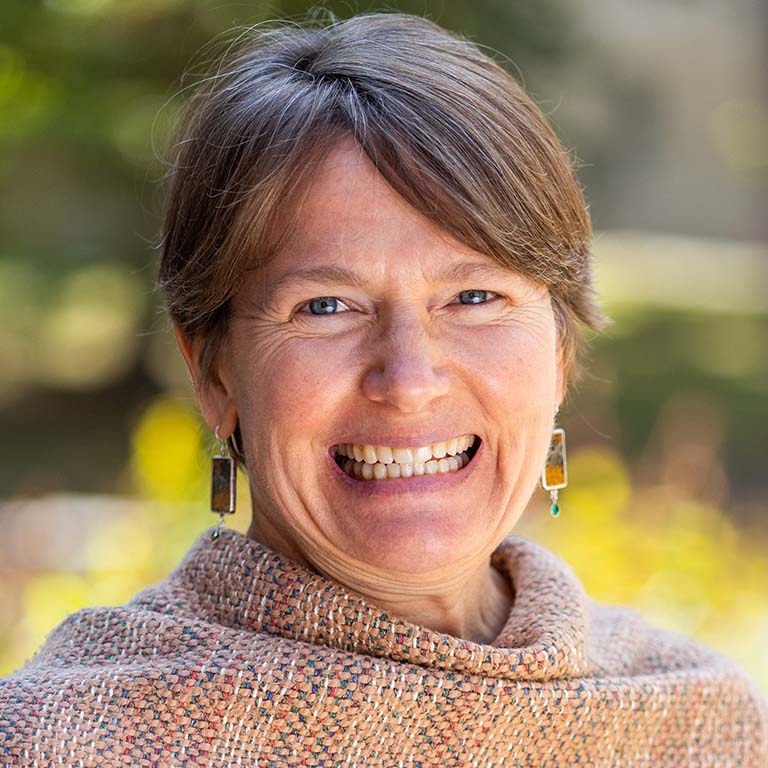- Postdoctoral Fellow, WK Kellogg Biological Station, Hickory Corners, MI, 1995-1998
- Ph.D., University of California, Berkeley, 1995

Heather Reynolds
Professor, Biology
Director of Graduate Studies, Biology

Professor, Biology
Director of Graduate Studies, Biology
Biology Bldg. 155
812-855-0841
Reynolds Lab website
Our lab’s broad interests are in plant-environment interactions, with the goals of understanding the mechanisms shaping plant and microbial community composition and diversity, ecosystem functioning, and system responses to abiotic and biotic environmental changes. Within these broad areas, we are especially interested in the importance of plant-soil and plant-microbe relationships and the role of environmental heterogeneity. We work primarily with herbaceous systems (e.g. prairie, old-field, forest floor) using a combination of experimental and observational approaches.
The 21st Century has been dubbed “The Century of the Environment” in recognition of the importance of the world’s diverse ecosystems for the continued health of our society and the increasing threats that human activities pose to this relationship. Thus, we are not only interested in testing and advancing ecological theory, but also in the application of ecological knowledge to restoration and sustainable agriculture, and in educational outreach.
Education and outreach: Service-learning is a form of experiential or active learning (“learning by doing”) that involves partnerships between students and communities. In service-learning, the service is a mechanism by which students can deepen understanding of course content and its application to the “real world,” and explore their own roles and responsibilities as citizens of society. I offer several undergraduate and graduate service-learning courses (see lab website).
Other education and outreach activity includes work with the Biology Club, Volunteers in Sustainability, and the Indiana University Architect’s Office to establish green landscaping with native prairie and woodland species on campus; a research/outreach project with interdisciplinary colleagues focused on invasive species control and native plant restoration in urban woodlands; public presentations on ecological limits, the steady state economy, and the value of ecosystem services; and service on the City of Bloomington Environmental Commission (2001-2010). Promoting understanding of the environmental, social, and economic dimensions of human-environmental interactions is an important focus of my educational activities, and colleagues and I address this literacy in the volume “Teaching Environmental Literacy. Across Campus and Across the Curriculum,” featuring essays by colleagues in Biology and many other campus units.
Ecology
Microbial Interactions and Pathogenesis